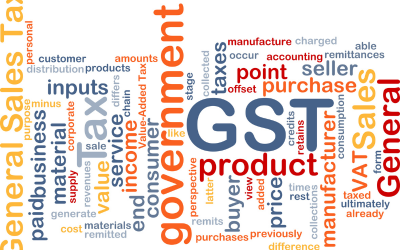Highlights:- International Accounting Standards (IFRS & GAAP): Learn the key international
accounting standards including IFRS and U.S. GAAP, and their practical applications inglobal businesses....
Highlights:
- International Accounting Standards (IFRS & GAAP): Learn the key international
accounting standards including IFRS and U.S. GAAP, and their practical applications inglobal businesses. - Cross-Border Financial Management: Master the complexities of managing finances inmultinational companies, including currency exchange, tax strategies, and global financial
management.
- Global Taxation and Compliance: Understand the global tax environment, includinginternational tax planning, transfer pricing, and compliance with tax laws across borders. - Financial Reporting and Analysis: Gain proficiency in preparing and analyzing financial
statements based on international standards, ensuring compliance with IFRS. - Strategic Management in International Accounting: Learn to manage accounting operationsstrategically for multinational corporations and understand the impact of corporate
governance. - International Auditing: Master auditing practices in an international context and understandthe role of auditing in ensuring compliance with global financial
Course Objectives:
By the end of this course, you will be able to: - Understand and apply international accounting standards (IFRS and GAAP) in
multinational business operations. - Prepare and analyze financial statements for international businesses in accordance withglobal accounting regulations. - Navigate complex international taxation systems, ensuring tax compliance in cross-border
transactions. - Manage currency risks, foreign exchange transactions, and cross-border investments inmultinational enterprises. - Implement strategic management and corporate governance practices in international
accounting. - Conduct audits for global firms and ensure compliance with international auditing standards.
Course Structure:
1. Introduction to International Accounting Management - Overview of international accounting and its significance for global businesses. - Key differences between local and international accounting practices. - The importance of international financial reporting standards (IFRS). - Globalization and its impact on financial management and decision-making. - Overview of financial regulations and compliance for international businesses.
2. International Accounting Standards (IFRS & GAAP)
- Detailed exploration of IFRS: principles, objectives, and standards (IFRS 1 to IFRS16). - Comparison of IFRS with U.S. GAAP and other regional accounting frameworks. - Understanding the transition from local standards to IFRS for multinational firms. - Preparing financial statements in compliance with IFRS. - Case studies on IFRS implementation and its impact on global financial
3. Global Taxation and Transfer Pricing
- Introduction to international tax laws and global tax compliance. - Understanding transfer pricing and its role in multinational taxation. - Global VAT/GST systems and cross-border tax considerations. - Tax treaties, double taxation, and international tax planning strategies. - Transfer pricing documentation, compliance, and reporting in multinational companies.
4. Cross-Border Financial Management - Financial management in multinational corporations: strategies and practices. - Foreign currency risk management and hedging techniques. - Cross-border investment strategies and managing global assets. - Understanding and managing global cash flow and liquidity. - Managing international working capital and financing across borders.
5. Financial Reporting for International Businesses
- Preparing consolidated financial statements under IFRS for multinational corporations. - Accounting for foreign operations and subsidiaries: handling currency translations. - Global financial statement analysis and performance evaluation. - Key performance indicators (KPIs) and financial ratios for international businesses. - Adjustments and reconciliations for global
6. International Auditing and Compliance
- International auditing standards (ISA) and their application in multinational corporations. - The role of auditors in ensuring compliance with global financial regulations. - Conducting audits of foreign subsidiaries and cross-border operations. - Ethical issues and independence in international auditing. - Auditing for financial integrity in global financial reporting.
7. Strategic Management and Corporate Governance in International Accounting
- Role of accounting in strategic decision-making for global businesses. - Corporate governance practices in multinational companies. - Regulatory bodies, financial reporting requirements, and compliance at the global level. - Risk management and internal controls in international accounting. - The impact of sustainability and corporate social responsibility (CSR) on global
accounting practices.
8. Managing International Financial Operations
- Effective management of multinational financial teams. - Technology and accounting software solutions for global financial management. - Financial planning and budgeting for international operations. - Integrating global financial operations for efficiency and compliance. - The future of international accounting management in a
Learning Methodology:
activities. - Case Studies and Practical Exercises: Analyze real-world business cases to apply the
concepts learned and develop practical skills. - Assessments and Quizzes: Regular quizzes and assessments to reinforce key concepts andevaluate progress. - Live Sessions and Webinars: Participate in live sessions and webinars with industry expertsto gain deeper insights and clarify doubts.
- Discussion Forums: Engage with fellow students and instructors in group discussions oninternational accounting issues.
Who Should Enroll:
- Aspiring accountants and financial professionals interested in specializing in international
accounting and financial management. - Accountants and financial managers working in or with multinational companies. - Business owners, entrepreneurs, and managers involved in international business operationsand finance. - Professionals looking to expand their knowledge of global tax systems, corporate
governance, and international financial regulations. - Students aiming to pursue a career in international finance, accounting, or auditing. - Anyone interested in understanding the complexities of accounting in a globalized world. The Diploma in International Accounting Management is a crucial qualification for thoselooking to specialize in global financial practices, accounting management, and multinational
financial operations. Whether you are an experienced professional, a business owner, or astudent looking to enter the field of international accounting, this course provides the skillsand knowledge required to manage financial operations for global organizations, ensure
compliance with international standards, and make strategic financial decisions in a cross- border environment.










